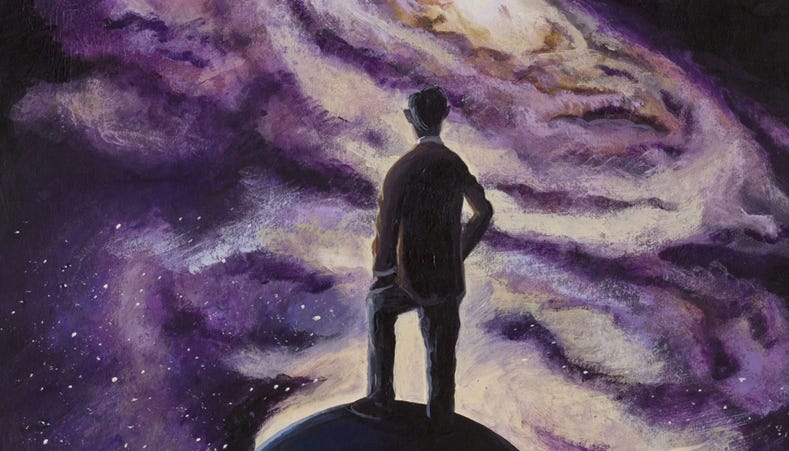
Regular readers of Homo Vitruvius will recall that before I was interrupted in early summer by national events and my move, I was in the midst of the real-time composition, week to week, of my late-life “intellectual and spiritual accounting of identity.” Not a memoir of my private life, it serves rather as an account of my mental formation and my orientation toward meaning in the world — what shaped me not as I am in intimate relations but who I emerged to be in my facing out to the world, like the figure above, a product of those intellectual and personal experiences that I, in turn, shaped into both a personal and a public self. I purposely mix the directions of the shaping – experience forming me, I forming myself – because that is the recursive nature of self-development. And, of course, the intellectual and spiritual development is not disconnected from my mor…
Keep reading with a 7-day free trial
Subscribe to Homo Vitruvius by A. Jay Adler to keep reading this post and get 7 days of free access to the full post archives.


